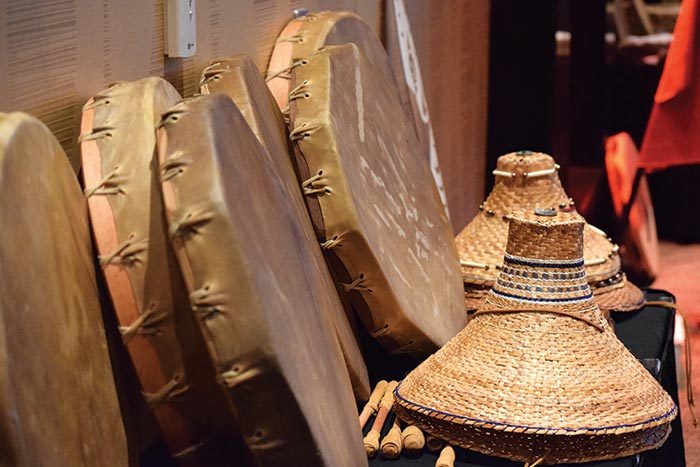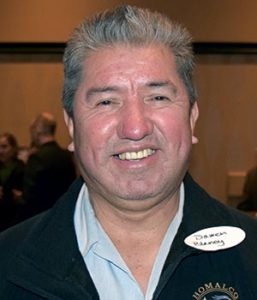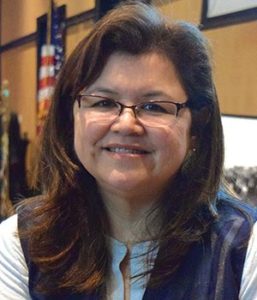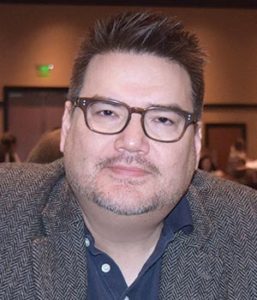Tulalip Gathering focuses on Salish Sea successes, challenges
The Coast Salish Gathering was held in late February on the reservation of the Tulalip Tribes.
The annual get-together of peoples from Western Washington Tribes and BC First Nations from around the Salish Sea is an opportunity for relations from both sides of the border to get together to create strategies and talk about timely issues.
Chiefs and other leaders as well as senior science and legal staff from the tribes and nations met with their neighbouring federal, state and provincial representatives from the Environmental Protection Agency, Environment Canada, the Ministry of Environment, the Department of Ecology, the Puget Sound Partnership and Fisheries and Oceans Canada.
‘Why are you here?’
By Cara McKenna
The Salish Sea Sentinel caught up with several leaders representing Naut’sa mawt Tribal Council nations at the Gathering at the Tulalip Resort to find out what was on their minds during discussions.
Darren Blaney, Homalco councillor and artist
Q. Why was it important to you to come to this gathering this year?
The stresses and strains on the Salish Sea. We’re living in a pollution-based economy. Every time pollution happens within our territory, that means our Aboriginal rights are taking a hit.
So I think if we’re able to protect our territory, we will maintain our rights, because our rights and the environment go hand in hand. And at these kinds of conferences, we can start to figure out better strategies.
It seems like every discussion with the provincial and federal governments has to centre around the economy, but what about the environment, for the environment’s sake? At some point we have to be able to breathe the air, drink the water.
It becomes very basic in terms of survival, but we push this economic agenda to the point where people’s lives don’t matter anymore. We’re going to be the victims of it. First Nations have always been at the front lines of trying to maintain our way of life. I think the general society is just starting to understand this is where things are headed.
Q. Is there any issue in particular that you’re thinking about right now?
I was just reading about Alexandra Morton’s research on fish farms. A report recently came out on piscine reovirus (PRV) that shows, when the salmon are stressed, it transforms into a heart and skeletal muscle disease, which diminishes our salmon stock even more.
The fish farmers have been denying this and the Department of Fisheries and Oceans have been denying this, but this report actually confirms that it is in our salmon…
I’m not sure what will have to happen for the feds and (federal fisheries minister) Dominic LeBlanc to take this issue seriously.
Leah George-Wilson, Tsleil-Waututh lawyer and former chief
Q. Why did you decide to attend this gathering this year?
It’s always important for our own people to get together to talk about what our issues are in our areas. How we can support each other, and how we can bring the strength of all of us combined?
It’s also really great to have the different levels of government on the Canadian side as well as on the US side here so that they can hear from us what’s important to us, what matters to us, what our thinking is and what can happen.
Q. Is there any one issue that’s at the top of your mind currently?
All of the pipeline issues are important, not just Kinder Morgan’s Trans Mountain pipeline. There’s also the liquefied natural gas pipelines coming along, and down here they have coal by rail. Nations here were able to stop the coal port at Cherry Point, which is incredible. All of these
issues are affecting the health of the Salish Sea.
Doug White III, Snuneymuxw councillor and former chief, head treaty negotiator and lawyer
Q. Why was it important to you to take part in the Coast Salish Gathering?
There are a lot of really important issues happening right now around the Salish Sea that affect all Coast Salish peoples.
If we think about the Kinder Morgan pipeline ending up in Tsleil-Waututh territory and representing hundreds of ships of tar sands oil transiting right through the heart of the Salish Sea — if any one of those daily tankers ever spilled it would destroy the way of life of our people.
From the Snuneymuxw First Nation, I’m here to try to reach out to find out where things are at and to see how we can coordinate with our neighbours in the US.
In Snuneymuxw we have the Douglas Treaty, which is a very powerful tool and can be used as a shield against Crown actions that interfere with the continuity of our treaty rights.
Similarly, the Stevens Treaties down here from the same time period in the 1840s and ‘50s is also a very powerful legal tool in trying to resolve these issues and protect our lands and our waters.
This table (the Gathering) effectively represents all of the nations around the Salish Sea, the groups that hold the territorial sovereignty to the Salish Sea. If we can find ways to speak collectively on these issues, then it’s potentially very powerful.
I’ve always been a little bit frustrated at the fact that the Coast Salish peoples don’t function together on a more regular basis because of the enormous political power that we have. This is 50 or so nations on the Canadian side and dozens more on the southern side.
If we were able to use that voice on a regular basis we would be an extremely powerful force. My hope is that we find ways to find powerful alliances on key issues.







